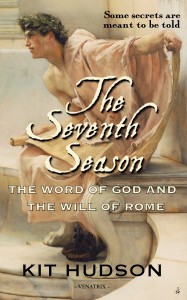According to Kit’s notes, the Aksum Scrolls were documents acquired by an American academic called Robert Garrett on an archaeological expedition in 1900. Garrett was a member of Princeton University’s Abysinnian Expedition to the Levant and he bought the scrolls – seemingly in a souk like any other purchase – to test the linguistic skills of his friend and mentor Enno Littmann. Many of the items bought by Garrett on this trip can now be found – along with his diary – in the Baltimore Museum of Art. The rest of his legacy was bequeathed to Princeton University’s library.

Robert Garrett competing in the 1896 Olympic Games
Littmann was a gifted linguist and translator who spoke ten ancient languages fluently and who, in later life, taught at Strasbourg university. (A member of the Hudson family has a letter from Kit with a Strasbourg postmark, so I am assuming that this is how Kit first encountered the Aksum scrolls. Of course, Kit also had connections at Princeton). When the Aksum scrolls proved beyond Littmann’s linguistic powers, it seems the scrolls were transported back and forth between Princeton and Strasbourg in the hope that a new intake of students would be able to crack their code.
The scrolls had been written using the Aramaic alphabet but the letters did not spell out Aramaic words (Aramaic was the form of Hebrew probably spoken in Palestine in the time of Christ). Kit determined that the letters had been used to phoneticaly spell out words from an antecedent of Oromo, a language he spoke as a child in Kenya. There can’t have been many classicists who knew Oromo’s origins and Aramaic, so it is not surprising that so many eminent scholars failed to make the connection. However, when texts appear encrypted, legends about curses and secrets often get attached to them, and this is what happened with the Aksum scrolls. Of course, the explanation as to why they would have been written in Oromo is – according to Kit – straightforward. They would have been used by missionaries in the early church who did not speak Oromo (but did read Aramaic) to recite Emmanuel’s words to the tribes of east Africa.
I am not clear what happened to the scrolls themselves after publication of The Seventh Season. Telephone enquiries to the libraries at Princeton and Strasbourg have been inconclusive, but if they were still in Kit’s possession at the time of his death (which is unlikely) then the executor had no knowledge of them. Sadly, no member of the Hudson family has inherited them.


